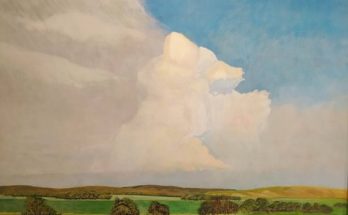By Clare Howell
Science tells us that every ten years the body replaces itself by generating all new cells so that, physically, we’re not the same person we were a decade ago. But science can’t tell us how our ever-active mind, the pulse of our being, provides a stable continuity both to keep us on an even keel and grow. The best way I know to discover how much my mind is evolving is by rereading favorite books over time. Always the same words, but their effect, the richness of the experience of re-engaging, is always a new adventure. The older I get the more I reread because it’s not only that particular world I re-visit, but my younger self.
Many people reread their favorites every year. I, too, revisit favorites: “A Good Man is Hard to Find”, by Flannery O’Connor, “Shadow Country”, by Peter Matthiessen, and always the poetry of Richard Wilbur and Elizabeth Bishop. At least once a year I relive the wondrous, spare novels, “Waiting for the Barbarians” and “The Life and Times of Michael K”, by J.M. Coetzee.
Even “Treasure Island”, a copy of the same illustrated edition I first read as a child, sits on my bedside reading table. It comforts me just being there. With each time through, I marvel how strangely life is turning out and how revelatory stories can be. That fact that true-to-life fiction can give us moral insight was a fateful discovery and has made me a lifelong reader.
I first read “Crime and Punishment” at seventeen. I found it earnest and confusing but was transfixed by the black-and-white woodcuts it was illustrated with, as if all of Russia was low-ceilinged and cold because, in every austere woodcut, characters were bent over in cramped quarters, wearing coats. This backdrop of dreariness has been my mind’s setting for every Russian novel I’ve read since, from “The Brothers Karamazov” to the works of Tolstoy and Turgenev. But rereading “Crime and Punishment” last year laid me bare. I have developed demons of my own down the years, all of which continue to cling to the demons within Raskolnikov, as we took a rollercoaster ride through his tortured mind and story. I look forward to reading it again next year.
The first adult novel I read, at the age of thirteen, I had found in my deceased Aunt Jesse Merle’s attic among many other dusty hardcovers. As a painfully sensitive kid, the title got me: “The Well of Loneliness”, by Radcliffe Hall. The book was overwrought with an angst I couldn’t understand, so obliquely was the story revealed. Had I only known.
Long forgotten, years later, the book came my way as a gift from a colleague. By then I was well aware that it had caused a sensational obscenity trial in London in 1928. I read it again, finding it depressing—of a hopelessly displaced, self-loathing person in Stephan. What’s fascinating about this read, however, is that Aunt Jesse Merle, wife of a small town southern sheriff, was reading the first openly lesbian novel published in English.
What’s on your rereading list?




